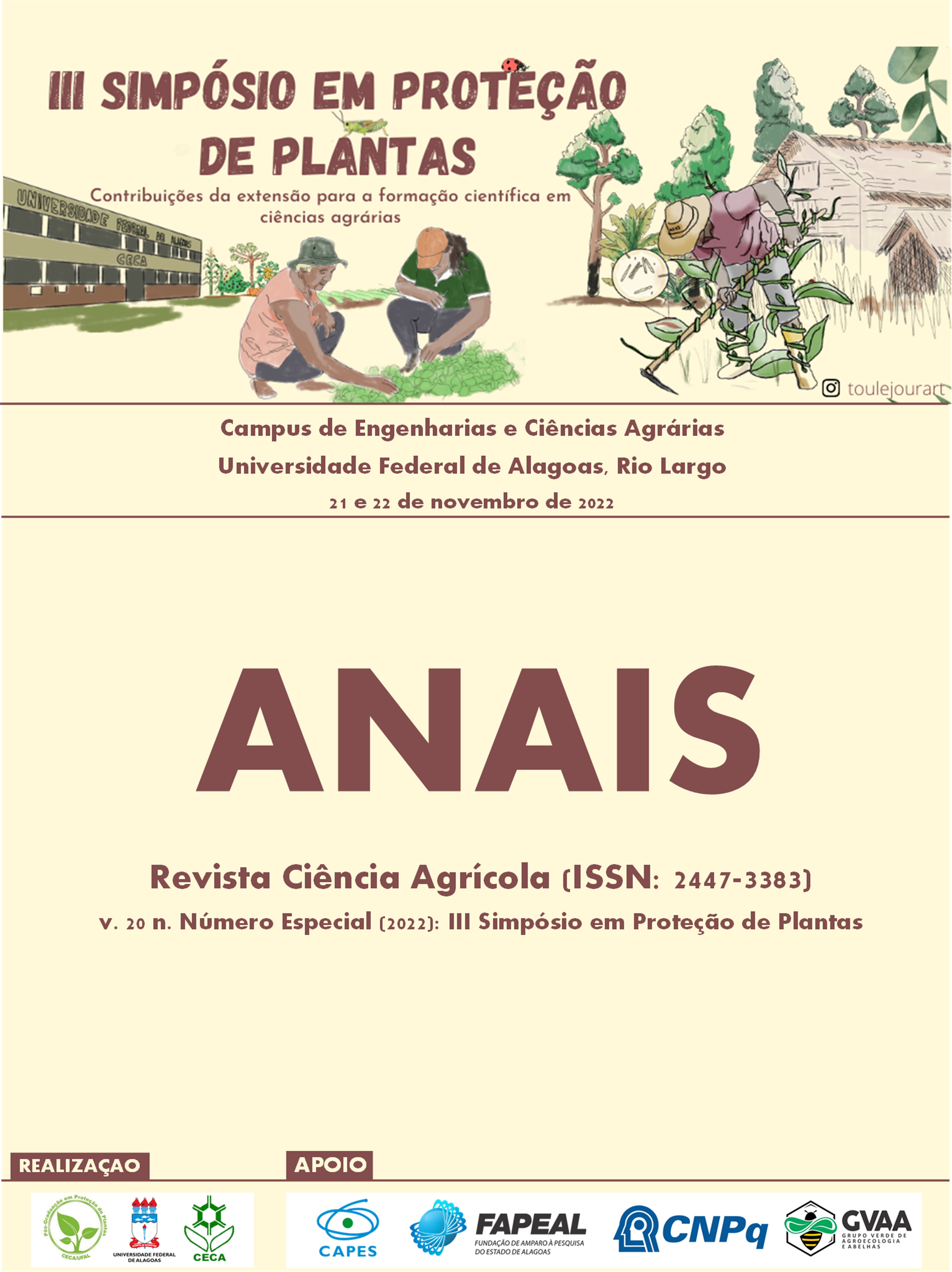Host preference of Sitophilus zeamais (Coleoptera: curculionidae) in corn varieties
Keywords:
Weevil, stored grains, insect pestsAbstract
Corn crop is considered one of the most important agricultural crops worldwide and has great importance in Brazilian agriculture, being characterized by its various forms of use, presenting itself as a source of raw material for the manufacture of typical products of Brazilian cuisine. Corn is essential for food security, as it is considered a food of high energy value, representing the second most important cereal in terms of world production, surpassed only by wheat. Several economic losses have been observed due to the storage of seeds, among them, the emergence of insect pests. Several pests can cause serious economic damage and compromise the quality of grains in corn, among them it is worth mentioning the weevil of corn Sitophilus zeamais Mots, 1855 (Coleoptera: curculionidae), which can compromise up to 30% of the corn grains stored. The insect causes problems in the quality and germination quantity of seeds. Thus, the aim of this study was to evaluate the host preference of S. zeamais in the paired varieties of corn identified as Recife X corn Alagoas corn. For this, test arenas with choice were used, consisting of 03 plastic pots linearly interconnected by connecting tubes. In the central pot, 10 adults of S. zeamais were released and after 24 hours the choice was verified. As a result, there was no host preference among the varieties of corn x corn Alagoas (ꭓ2=0.01; P=0.90), indicating that S. zeamais has similar infestation capacity in both varieties of pairing.
Downloads
Downloads
Published
Issue
Section
License
Copyright (c) 2022 Ester Letícia da Silva Amaral et al.

This work is licensed under a Creative Commons Attribution 4.0 International License.
Termo de cessão de direitos autorias
Esta é uma revista de acesso livre, em que, utiliza o termo de cessão seguindo a lei nº 9.610/1998, que altera, atualiza e consolida a legislação sobre direitos autorais no Brasil.
O(s) autor(es) doravante designado(s) CEDENTE, por meio desta, cede o direito de primeira publicação da OBRA à Revista Ciência Agricola, representada pelo Centro de Ciência Agrarias da Universidade Federal de Alagoas, estabelecida na BR 104 Norte, Km 35, Rio Largo, Alagoas, CEP 57100-000 doravante designada CESSIONÁRIA, nas condições descritas a seguir:
O CEDENTE declara que é (são) autor(es) e titular(es) da propriedade dos direitos autorais da OBRA submetida.
O CEDENTE declara que a OBRA não infringe direitos autorais e/ou outros direitos de propriedade de terceiros, que a divulgação de imagens (caso as mesmas existam) foi autorizada e que assume integral responsabilidade moral e/ou patrimonial, pelo seu conteúdo, perante terceiros
O CEDENTE mantêm os direitos autorais e concedem à revista o direito de primeira publicação, com o trabalho simultaneamente licenciado sob a Licença Creative Commons do tipo atribuição CC-BY, para todo o conteúdo do periódico, exceto onde estiver identificado, que permite o compartilhamento do trabalho com reconhecimento da autoria e publicação inicial nesta revista, sem fins comerciais.
O CEDENTE têm autorização para distribuição não-exclusiva da versão do trabalho publicada nesta revista (ex.: publicar como capítulo de livro), com reconhecimento de autoria e publicação inicial nesta revista.
O CEDENTE têm permissão e são estimulados a publicar e distribuir seu trabalho online (ex.: em repositórios institucionais ou na sua página pessoal), já que isso pode gerar alterações produtivas, bem como aumentar o impacto e a citação do trabalho publicado.




